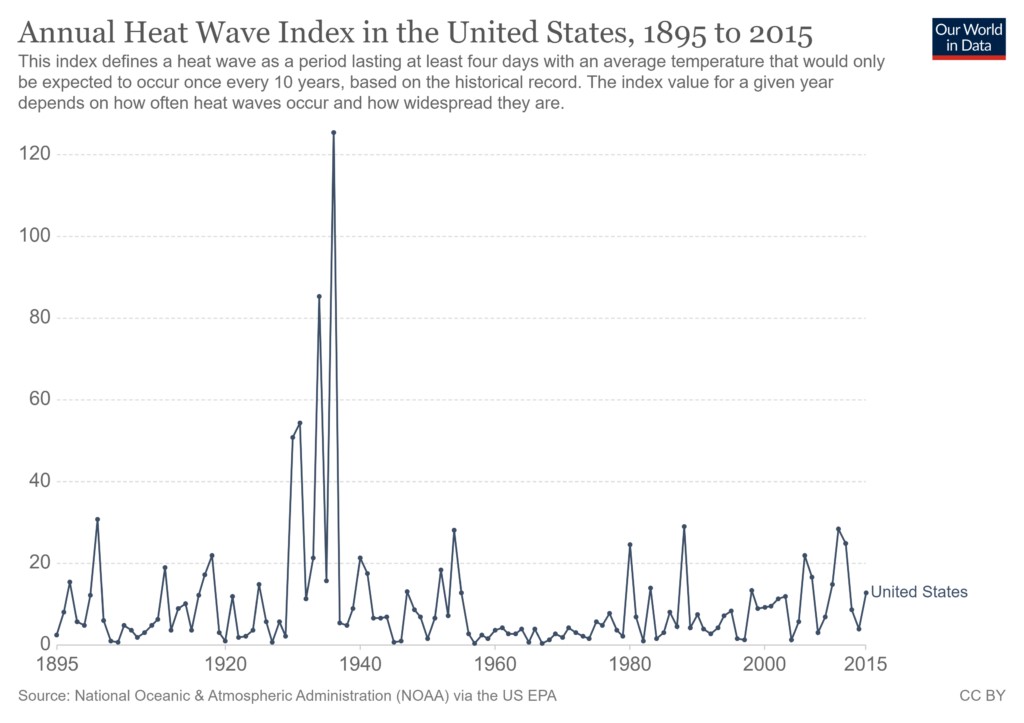Heatwaves during recent decades remain far less frequent and severe than was the case during the 1930s – nearly 100 years of global warming ago, reports a new topical summary at the website Climate at a Glance. When climate alarmists react to annual summer heatwaves by claiming they are being caused by global warming, people interested in the truth now have a concise, compelling source for rebuttal.
According to Climate at a Glance: U.S. Heatwaves, a majority of each state’s all-time high temperature records were set during the first half of the 20th century – approximately 100 years of global warming ago. Also, the most accurate nationwide temperature station network, implemented in 2005, shows no sustained increase in daily high temperatures in the United States since at least 2005.
Heatwaves have always been a natural part of the American climate. Global warming will not put an end to heatwaves. However, global warming is not making heatwaves much worse, either, if at all. That is because the lion’s share of the Earth’s modest warming occurs during winter, at night, and closer to the poles.
The graph below illustrates how heatwaves were much more frequent and severe during the 1930s. Also, data show recent heatwaves are well within historically typical ranges.

Like all other aspects of the well-funded Climate Delusion, claims that global warming is causing more frequent and severe heatwaves wilt under the heat of scientific scrutiny.






















I would also not that Irving Berlin wrote the song, “Heat Wave” in 1933, according to Wiki, FYI.
[…] Read more at Climate Realism […]
Thank you as always for a throughly well-researched , convincing and insightful article. Please keep educating the ignorant !
[…] Read more at Climate Realism […]
[…] dinosaurs got cancer, too Grooming behavior between dairy cows reveals complex social network Heatwaves Are LESS Frequent And Severe High Solar Winds And Flares Send Spiritual Messages Hot Temperatures and Suicide Risk How a […]
[…] Here is the Annual Heat Wave Index for the USA (1895 – 2015) […]